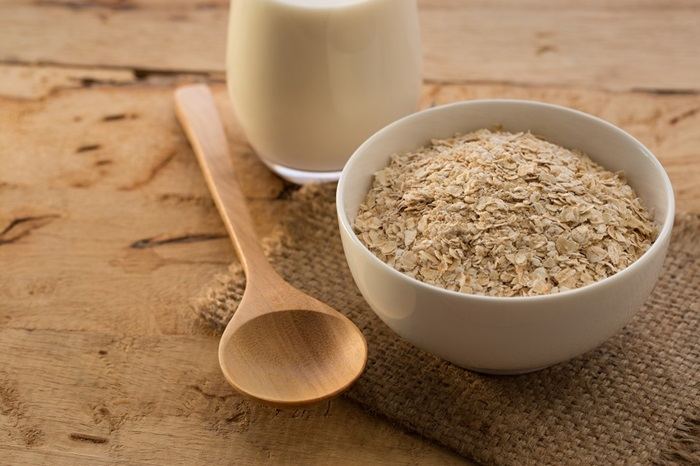Oat milk, a popular plant-based alternative to dairy, has gained attention for its potential health benefits. For individuals with kidney disease, choosing the right beverages is crucial due to dietary restrictions. This article explores whether oat milk can be beneficial for people with kidney disease, delving into its nutritional value, preparation methods, and cultural significance. Whether you’re managing kidney disease or simply interested in healthier drink options, this guide will provide valuable insights.
Nutritional Benefits of Oat Milk
Oat milk offers several health benefits:
Low in Fat: Oat milk is generally lower in fat compared to dairy milk, making it a lighter option.
Rich in Fiber: Contains beta-glucan, a type of soluble fiber that supports heart health and cholesterol management.
Fortified Vitamins and Minerals: Many commercial oat milks are fortified with essential nutrients like calcium, vitamin D, and B12, which are important for overall health.
Hydration: Staying hydrated is vital for everyone, especially for those with kidney disease. Adequate hydration helps maintain proper kidney function and prevents dehydration.
Nutritional Concerns for Kidney Disease Patients
Phosphorus Content: One key concern for kidney disease patients is phosphorus intake. High levels of phosphorus can lead to complications such as bone and heart issues. While oat milk contains phosphorus, it is generally lower than in dairy milk. However, some commercial oat milks may have added phosphates for fortification, so it’s important to check labels.
Potassium Levels: Potassium is another mineral that needs careful monitoring. Excessive potassium can be harmful to individuals with kidney disease. Oat milk typically has moderate potassium levels, but this can vary depending on the brand and preparation method.
Protein Content: For those with kidney disease, protein intake must be balanced. Oat milk provides a modest amount of protein, which can be beneficial when consumed in moderation. However, it should not replace other sources of high-quality protein unless recommended by a healthcare provider.
Choosing the Right Oat Milk
Unsweetened Varieties: Opt for unsweetened oat milk to avoid unnecessary sugars. Sweetened versions can contain added sugars, which can affect blood sugar levels and overall calorie intake.
Fortified Options: Look for oat milk that is fortified with essential vitamins and minerals like calcium and vitamin D. These nutrients are important for maintaining bone health, especially for those with kidney disease who may need additional support.
Homemade Oat Milk: Making oat milk at home allows you to control the ingredients. Use plain oats and water, and avoid adding any extra sugars or additives. This ensures a purer, more controlled product.
Impact of Oat Milk on Kidney Health
Blood Sugar Management: Oat milk can help manage blood sugar levels due to its low glycemic index and fiber content. Stable blood sugar levels are important for overall health, particularly for those with kidney disease who may also have diabetes.
Heart Health: The beta-glucan in oat milk can contribute to heart health by lowering cholesterol levels. A healthy cardiovascular system is crucial for kidney function and overall well-being.
Kidney Function Support: While oat milk does not directly treat kidney disease, its nutrient profile can support general health and reduce the risk of complications associated with poor kidney function.
Cultural Significance of Oat Milk
Ancient Origins: Oats have been cultivated for thousands of years and were initially used for medicinal purposes. Over time, they became a staple food in many cultures, valued for their nourishing properties.
Symbolic Meaning: In many cultures, oats symbolize abundance and sustenance. They represent hardiness and resilience, qualities that resonate with the enduring nature of traditional foods.
Regional Variations: Different regions have unique traditions involving oats. In Scotland, oats are a cornerstone of the diet, featuring prominently in porridge and oatcakes. In Scandinavia, oat milk is gaining popularity for its health benefits and environmental sustainability.
Health and Wellness: Traditional medicine values oats for their ability to support digestive health and energy levels. Modern research confirms that many of the nutrients found in oats promote heart health, immune function, and metabolic well-being.
Practical Tips for Incorporating Oat Milk into a Kidney-Friendly Diet
Choosing Quality Ingredients: Select fresh and high-quality oats for homemade oat milk. Look for organic oats if possible to ensure purity and avoid pesticides.
Enhancing Flavors: To boost the flavor of your oat milk, consider adding spices like cinnamon or nutmeg. These ingredients can introduce new layers of taste and aroma while providing additional health benefits.
Experimenting with Cooking Methods: While drinking oat milk is common, don’t hesitate to experiment with cooking methods. Try using oat milk in soups, smoothies, or sauces for added creaminess and nutrition. Incorporating different types of oat milk can also add variety.
Meal Planning: Plan your meals carefully to balance oat milk consumption with other foods. Pair oat milk with high-fiber foods like whole grains or vegetables to slow down digestion and prevent rapid spikes in blood sugar levels.
Conclusion
In conclusion, oat milk can be a beneficial addition to the diet of individuals with kidney disease when chosen and consumed wisely. By following the steps outlined in this guide, you can enjoy the nutritional benefits of oat milk while managing kidney health effectively. The combination of low fat, fiber, and fortified nutrients makes oat milk a valuable addition to any meal. Whether you’re managing kidney disease or simply interested in healthier drink options, mastering the art of balancing flavors and nutrients is key. Enjoy the culinary adventure and the health benefits of incorporating oat milk into your daily routine. Remember, each sip tells a story of cultural richness and personal enjoyment. Embrace the unique qualities of this beverage and discover why it has stood the test of time in promoting wellness.
By exploring the preparation and cultural significance of oat milk, we honor a tradition that has nourished generations and continues to enrich our dining experiences today. This drink not only delights the palate but also connects us to the rich tapestry of culinary history. Celebrate the vibrant textures and flavors of oat milk and let it become a staple in your kitchen.
Related topics:


